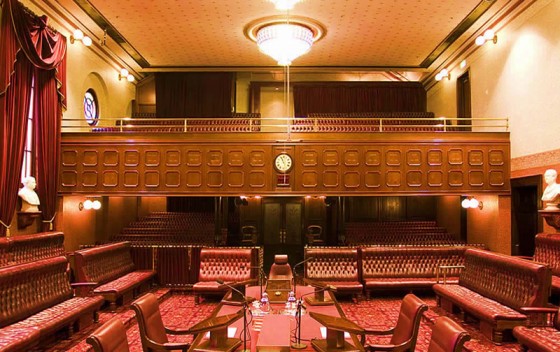
Azerbaijani and Turkish communities of Australia have sent a letter of protest to the NSW Legislative Council members and government officials concerning the 25 October 2012 Motion moved by the Hon. Marie Ficarra on “Declaration of Independence of the Republic of Nagorno-Karabakh Twentieth Anniversary”.
The letter has been prepared by the Australian-Azerbaijani-Turkic Friendship Unity and supported by 50 Australia-based organizations, in addition to 800 individual signatures by the NSW community members.
“We would like to bring to your attention that Nagorno Karabakh is an internationally recognized sovereign territory of Azerbaijan, recognized by the all UN member countries including Australia.
The aforementioned motion has been abusively mispresented in some mass media outlets as the recognition by the New South Wales of the independence of internationally unrecognized Nagorno Karabakh, an area of a protracted, armed, fragile regional conflict between two former Soviet Union (USSR) countries of Azerbaijan and Armenia, which claimed over 30 000 lives and still killing hundreds of people each year.
As a result of this armed ethnic conflict, Azerbaijan has been left with nearly one million refugees and internally displaced persons (IDP) as reflected in the emergency humanitarian assistance resolutions adopted at the UN General Assembly, including the 48th session, and in formal instruments of international human rights organizations. Given a population of 9 million, Azerbaijan has the highest number of refugees and IDPs per capita in the world.” the letter reads.
According to the letter, such smear lobby campaign, as exercised by Armenian National Committee of America (ANCA) here in Australia, is designed to mislead the international community, delay peaceful negotiations process, lay so-called fictitious Armenian genocide claims against Turkic nations, damage deep-rooted close relations of the Australian community of Turkic origin in the NSW and cover up war crimes committed during Karabakh war, such as Khojali genocide.
“We are deeply concerned to note that while Nagorno Karabakh is neither recognized internationally, nor by even Armenia itself, such a motion attributed to the NSW Legislative Council, mispresented as recognition of military separatist movement, unfortunately comes at a time when the international efforts are mobilized to find a peaceful solution to the conflict, to build confidence for coexistence among the communities of the conflict parties, and establish sustainable peace and stability in the region. Such actions also hurt feelings of over 600 000 people of Nagorno Karabakh, who live as refuges now, being unable to return to their homeland.
Given Azerbaijan is a relatively small and faraway country to be in the scope of Australia’s geopolitical interests, we would like to believe that this motion has been moved because of not having enough information about the nature of the Nagorno Karabakh conflict, lobby activity and undeclared donations of Armenian National Committee of Australia (ANCA) and lack of research and investigation into the issue.
We would like to believe that the NSW Legislative Council will investigate these concerns raised by members of one of the biggest communities of the State, and will always give priority to not lobby groups but to the authoritative sources including the resolutions of the UN Security Council, UN General Assembly, Council of Europe (CoE), European Parliament (EP), European Union (EU), Organization for Security and Co-Operation in Europe (OSCE) and all other international organizations, as well as official documents and websites of the Australian Federal Government,” the letter says.
Note that the conflict in Azerbaijan’s multi-cultural southwest region of Nagorno Karabakh erupted towards the end of Soviet rule in 1988 when Armenian military secessionists, using the chaos amid the loss of government control, started to drive out non-Armenian ethnic groups to proclaim an ‘independent country’.
The conflict still remains one of the most dangerous, fragile unfrozen conflicts in the post-Soviet Europe.
The UN Security Council has to date issued 4 resolutions (#822, #853, #874, #884) on unconditional withdrawal of Armenian troops from the occupied lands of Azerbaijan, in addition to the repeated resolutions by the UN General Assembly.
The OSCE Minsk Group, co-chaired by the United States, France and Russia, has been endeavoring to broker a negotiated deal to end the deadly conflict within the cardinal principles of international law and the UN, including territorial integrity and inviolability of sovereign borders.
